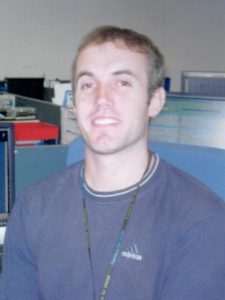The anniversary of Chris’s death was last Bank Holiday Monday. He has been dead for 17 years. Sometimes I think I’ve got over it. Sometimes I don’t.
Recently I’ve spent time on LinkedIn, connecting with suicide groups. The prevailing suicide prevention trend is to encourage people to ask their friends if they are all right, and encourage them to open up – and not be afraid to ask ‘Are you thinking about ending your life?’
I hope this works. But I also hope they ask their friends if they feel there could be a physical cause for their depression. Chris said to me after his first suicide attempt, when he was staying with us, that he wanted ‘to get to the bottom’ of why he felt like this before getting a job, so I think he had an inkling. But I urged him to get work because I thought activity would help him. I was so wrong. We should have searched and searched for a medical reason.
Here is a post I put on LinkedIn.

Our son Chris had sessions with a counsellor, unbeknown to us, before he killed himself.
This is what he wrote to his boss in his suicide note.
“Counselling was therapeutic, but each time the warm afterglow feeling only lasted for half a day. Waking up the next morning I was always back to where I was.”
Talking and listening, love, all these help enormously. But for some people, none of these things can shift the depression, because it’s caused by a medical condition. We need to look more deeply at people who lose that ‘warm afterglow feeling.’ Have they ever had a head injury? Could they have growth hormone deficiency? It’s estimated that over a million in the UK have it, undiagnosed.
